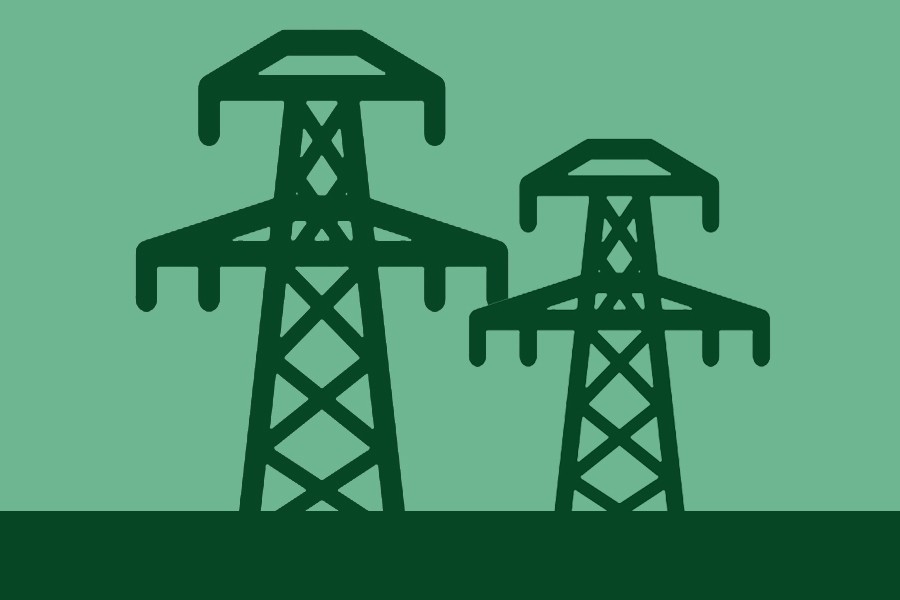A yet-unexplained countrywide blackout is followed by frequent load-shedding now as private power producers have fully or partially shut their plants citing "fund shortage" to buy fuels, sources say.
Owners of many of the private power plants, especially of furnace oil-fired ones, have either shut their plants or squeezed electricity generation on grounds that they are in fund crisis to import fuels.

This is the first time that the private-sector power producers -- who sell electricity to the government under much-talked-about unsolicited deals -- squeezed electricity generation on their free will while there has been a crying need for electricity, insiders said. It also makes uncertain the assurance of freeing the country from load-shedding by September or early October.
Sources remind that State Minister for Power, Energy and Mineral Resources (MPEMR) Nasrul Hamid along with some other government high-ups earlier had declared that there would be no load-shedding from late September or early October.
On the contrary, they say, load-shedding situation worsened with several hours' outages in cities and multiple hours in rural areas across the country.
According to the state-run Bangladesh Power Development Board (BPDB), electricity generation to the tune of around 800 megawatts was shut in privately-owned power plants due to fuel shortages as on October 8, 2022.
Around 3,617MW electricity generation was said to have been shut due to natural gas crisis and 1,844MW suspended due to overhauling of power plants.
Many private oil-fired power plants could not generate electricity from their plants as they lack necessary fuels to run their plants, president of Bangladesh Independent Power Producers Association (BIPPA) Imran Karim told the FE Monday.
Most of them are running with fund shortage as the BPDB is not paying them regularly to continue electricity generation as per agreement, he alleged.
Currently, the BPDB owes around Tk 160 billion to the private power-plant owners, he said.
"We are importing fuel as much as we can to generate electricity," he adds.
Officials said most oil-fired plants were awarded to the private sector through unsolicited offers under the Speedy Supply of Power and Energy (Special Provision) Act 2010.
The law has a provision of immunity to those involved with quick-fix remedies.
The private plant owners purchase furnace oil of their own on a 'free on board (FOB)' basis, and arrange vessels to import oil by paying freights of their own.
Then they get back all the costs along with 9.0-percent service charge from the BPDB.
The private owners also get payment additionally for generating electricity from their plants.
They have been importing furnace oil since 2010 as state-run Bangladesh Petroleum Corporation (BPC) then expressed its 'inability' to import the fuel for private sector, a senior BPC official said.
But, over the past one decade, the BPC has improved its capacity to import furnace oil as per the requirement of private sector, he claimed.
To come out of the situation there is no alternative but to ensure 'true-up payments' in favour of private power-plant owners who import furnace oil of their own, said the BIPPA president.
True-up payment is to reconcile or match the balance of two or more items. It will be a sort of compensation to the private power owners for fluctuations in exchange rates.
The BPDB will have to ink 'side-letter agreements' with the private owners in addition to the existing deals to ensure the payments.
Currently, private-sector owners are not getting sufficient US dollars from the central bank to import furnace oil, Mr Karim claims.
Local and foreign banks are also showing reluctance to open letter of credit (LC) for importing furnace oil, the BIPPA top brass laments.
"We're incurring losses as we're paying around Tk 110 per US dollar while importing furnace oil but get payment from the BPDB as per bank rates, which is much below the import price," he adds.
Rights groups and energy experts, who have long been critical of private power-production deals, again oppose such true-up payments as they think it will be an additional window of making money by "fooling people".
"I think BPC alone should have the responsibility to import all sorts of petroleum products from the international market to ensure transparency and accountability in fuel-import costs," says energy-expert Prof Ijaz Hossain.
Mr Hossain, who teaches chemical engineering at Bangladesh University of Engineering and Technology (BUET), suggests that the government ensure proper monitoring to check irregularities.
There is a mismatch in importing petroleum products by the public sector and the private sector alike, Dr Shamsul Alam, energy adviser of the Consumers Association of Bangladesh (CAB), tells the FE.
The BPC has long been maintaining a low-accounting system, which is helping the vested groups to waste public money, he remarks.
The private plant owners should shoulder the loss from dollar fluctuations, if any, from the amount of 9.0 per cent as they get from the BPDB, Mr Alam adds.
Sources said the countrywide prolonged load-shedding has aggravated after the October 4 blackout when most parts of the country were left without electricity, affecting utility services and causing immense sufferings to commoners and businesses.
The probe committees formed by the government authorities to fix the problem and responsibility for the major debacle in the country's power sector have yet to submit reports.
According to BPDB, countrywide load shedding on October 9 was around 1459MW against the demand for 13,250MW when the power plants supplied around 11,791 megawatts in total.


